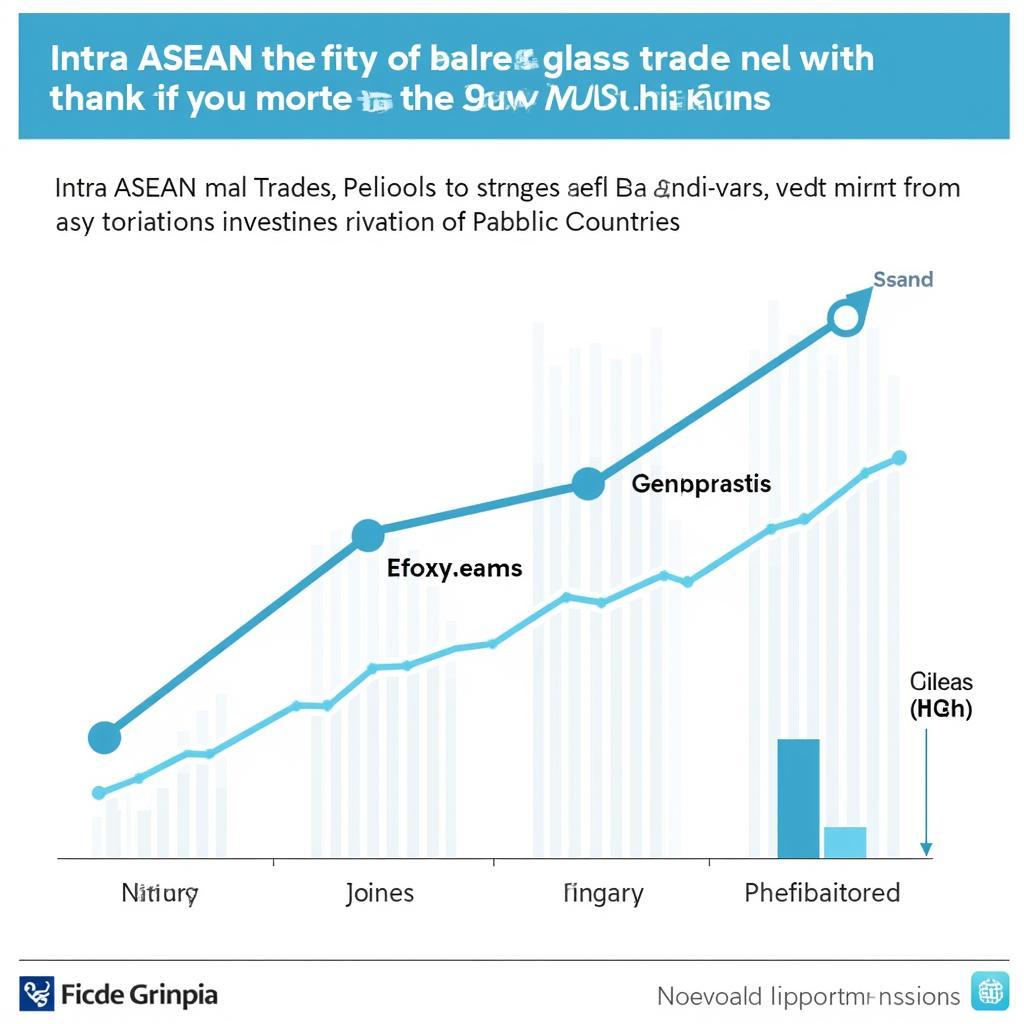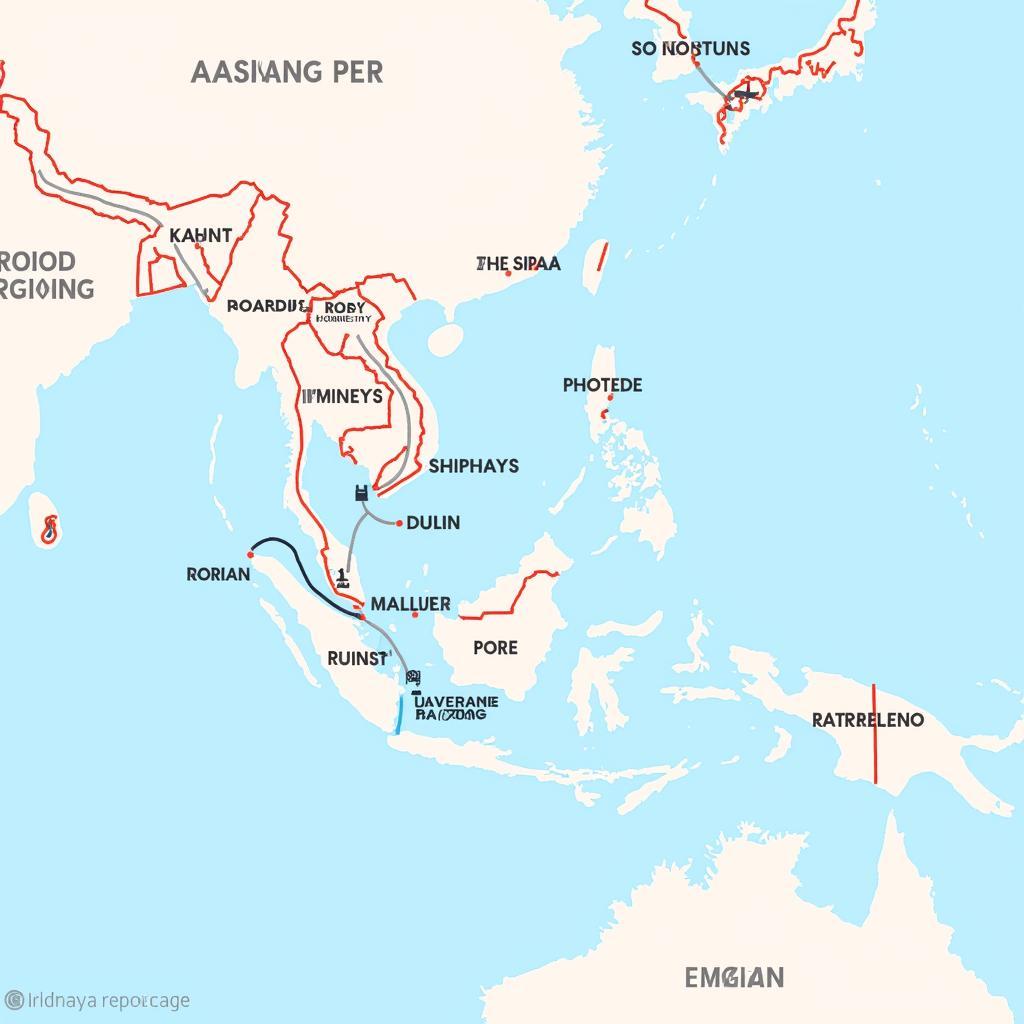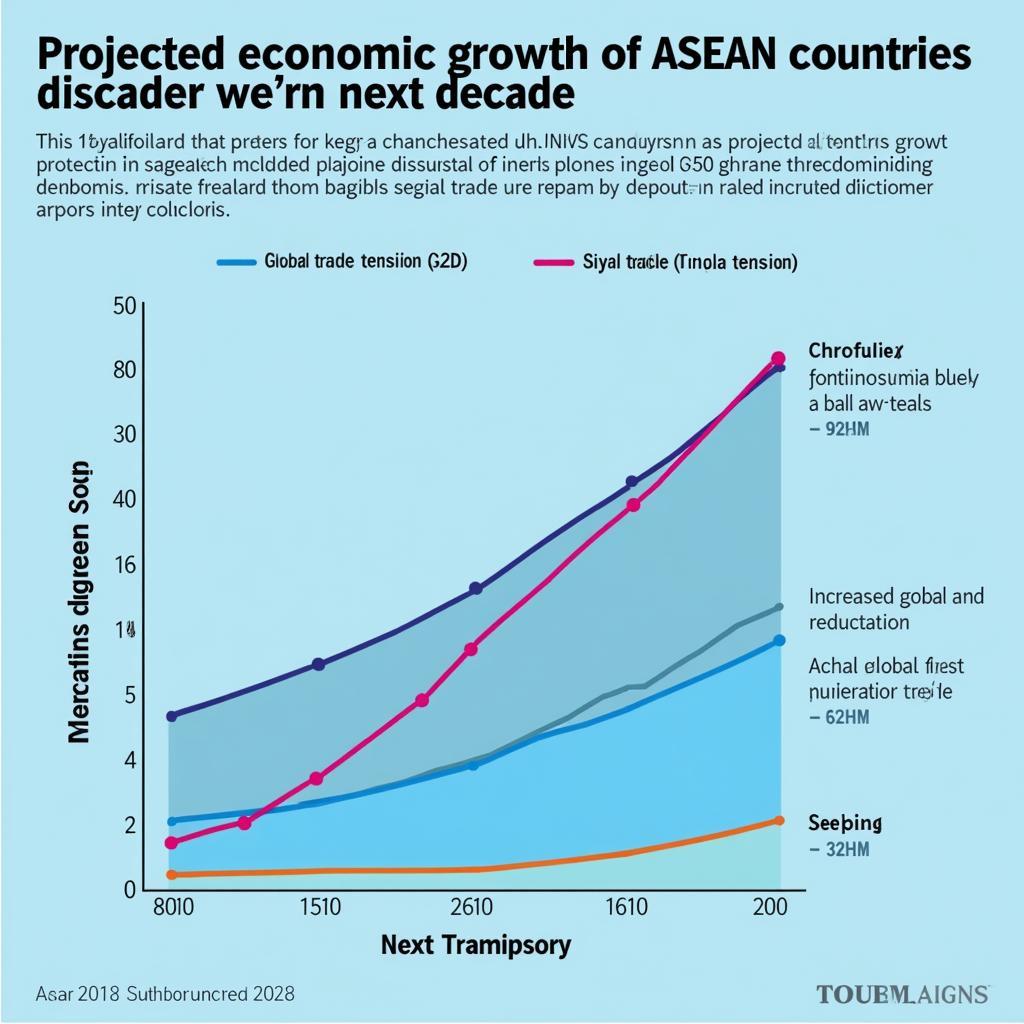The escalating global trade tensions present both challenges and opportunities for the Association of Southeast Asian Nations (ASEAN). Understanding how ASEAN can benefit from trade wars requires careful analysis of the shifting economic landscape and strategic positioning within the global market. This article explores the potential advantages for ASEAN amidst these trade disputes.
Trade wars, characterized by retaliatory tariffs and trade barriers between nations, disrupt established supply chains and create uncertainty in the global market. This disruption can open up new avenues for countries like those in ASEAN, enabling them to attract investment and expand their export markets. While the impact of trade wars is complex and varies across sectors, ASEAN’s diverse economies are well-positioned to leverage these shifts. One key advantage for ASEAN is the region’s increasing focus on intra-regional trade.
Navigating the Shifting Sands: ASEAN’s Advantages in Trade Disputes
ASEAN’s strategic location and growing consumer market make it an attractive alternative for businesses seeking to diversify their supply chains. As trade tensions rise, companies may relocate their manufacturing operations to ASEAN countries to avoid tariffs and maintain market access. This relocation can lead to increased foreign direct investment (FDI), boosting economic growth and creating new job opportunities within the region.
Additionally, ASEAN’s commitment to regional economic integration through initiatives like the ASEAN Economic Community (AEC) further strengthens its position. The AEC aims to create a single market and production base, facilitating the free flow of goods, services, investment, and skilled labor within the region. This integrated market enhances ASEAN’s resilience to external shocks, including trade wars, by fostering greater intra-regional trade and reducing dependence on specific external markets.
 ASEAN Trade Growth During Trade War
ASEAN Trade Growth During Trade War
Furthermore, trade wars can create opportunities for ASEAN countries to increase their exports to markets affected by the disputes. For example, if two major economies impose tariffs on each other’s goods, businesses in those countries may seek alternative suppliers in ASEAN. This presents a chance for ASEAN exporters to capture market share and expand their global reach.
Can ASEAN Really Capitalize on Global Trade Tensions?
While the potential benefits are significant, ASEAN must address certain challenges to fully capitalize on the opportunities presented by trade wars. These include improving infrastructure, streamlining regulations, and enhancing regional connectivity to facilitate trade and investment flows.
Moreover, ASEAN needs to strengthen its internal market by further reducing non-tariff barriers and promoting greater harmonization of standards and regulations. This will make it easier for businesses to operate across borders within ASEAN and enhance the region’s attractiveness as an investment destination.
 ASEAN Infrastructure Development for Trade
ASEAN Infrastructure Development for Trade
Furthermore, ASEAN should continue to advocate for a rules-based multilateral trading system and work towards resolving trade disputes through dialogue and cooperation. This will create a more stable and predictable global trading environment, benefiting all countries, including those in ASEAN. In this context, platforms like the ASE Conference Registration are crucial for promoting dialogue and cooperation amongst nations.
Seizing the Moment: Strategic Actions for ASEAN
To maximize the benefits from trade wars, ASEAN should focus on several key strategies:
- Diversifying export markets: Explore new markets and reduce dependence on specific trading partners.
- Attracting FDI: Implement policies that encourage investment in key sectors.
- Strengthening regional integration: Deepen economic cooperation and reduce internal trade barriers.
- Promoting innovation and technology: Invest in research and development to enhance competitiveness.
- Developing human capital: Equip the workforce with the skills needed for the changing global economy. Understanding the ASE V2 vs V1 can be a valuable asset in this endeavor.
 ASEAN Economic Growth Projection
ASEAN Economic Growth Projection
“ASEAN must seize this opportunity to position itself as a stable and attractive destination for trade and investment. By proactively addressing the challenges and implementing strategic policies, the region can emerge stronger and more resilient in the face of global economic uncertainty,” says Dr. Maria Santos, a leading economist specializing in Southeast Asian economies. She also adds, “Understanding the significance of gatherings like the Ano ang kahalagahan ng ASEAN Summit sa Pilipinas is critical for regional development.”
In conclusion, ASEAN has the potential to significantly benefit from trade wars by attracting investment, diversifying export markets, and strengthening regional integration. By implementing proactive strategies and addressing key challenges, the region can leverage these opportunities to drive sustainable economic growth and enhance its position in the global economy. Understanding how ASEAN can benefit from trade wars is essential for charting a course towards future prosperity. Platforms like the Aicha ASEAN play a vital role in facilitating this understanding. Learning about initiatives such as the ASE Group SIP can also be beneficial for understanding regional economic dynamics.
FAQ
- How can trade wars impact FDI in ASEAN?
- What are the key challenges for ASEAN in leveraging trade war benefits?
- How can ASEAN diversify its export markets?
- What is the role of the AEC in enhancing ASEAN’s resilience?
- What strategies can ASEAN implement to attract more investment?
- How can ASEAN benefit from promoting innovation and technology?
- What is the importance of human capital development for ASEAN?
Need support? Contact us 24/7 at Phone Number: 0369020373, Email: [email protected] or visit our address: Ngoc Lien Village, Hiep Hoa, Bac Giang, Vietnam.
